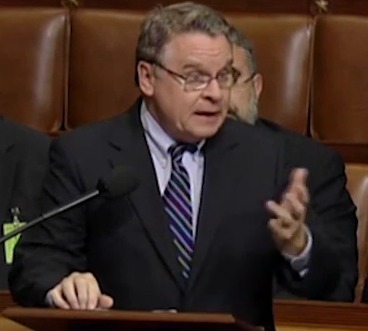Mr. Speaker, I rise in very strong support of H. Con. Res. 312, introduced by the very distinguished chairman of our full committee, Chairman Henry Hyde, urging the Government of the Russian Federation to withdraw or modify proposed legislation that would have a chilling effect on civil society in that country.
Amazingly, as Russia prepares to assume leadership of the G-8 and the Council of Europe next month, Russian lawmakers have been working feverishly to subordinate pockets of independent thought and action to state control. The focus of recent days has been on nongovernmental organizations, especially those working in the fields of human rights and democracy. In essence, the provisions would require all nongovernmental organizations to re-register with a government commission empowered with invasive powers to monitor NGO activities.
The Duma has passed amendments to the Law on Public Associations by a vote of 370-18, but the measure must go through further readings scheduled for next week and signed then by Vladimir Putin before it becomes law. In mid-November, members of the Helsinki Commission, which I am co-chair of, sent a letter which I will make a part of the RECORD to the Speaker of the Russian Duma, Boris Gryzlov, urging the Duma to reject the pending proposed amendments, purportedly crafted with input from Putin’s advisers.
The move against NGOs, Mr. Speaker, is not occurring in a vacuum, but is calculated to move in a lead-up to the critical parliamentary elections that are scheduled for 2007 and a presidential contest the following year to replace Putin, who is prevented from seeking another term.
In response to expressions of concern from the United States and others, some modifications to the draft are apparently being considered, though it is still unclear the extent to which the amendments will be revamped. We will not have a full picture until next week. By then, it may be too late to change before landing on President Putin’s desk. Thus, consideration of Chairman Hyde’s measure comes at a critical time for the House to be on record opposing the burdensome compulsory registration requirements being proposed.
As originally drafted, the proposed amendments will require Russia’s approximately 450,000 NGOs to re-register with a government commission under a complicated registration procedure and would expand the ability of the government to deny registration permission.
Financial auditing, a tactic currently used to harass opposition NGOs, would also become more intrusive under the bill’s provisions. No doubt there would be negative impact on foreign-based organizations, such as Human Rights Watch and the Carnegie Foundation, while increasing controls over NGOs of Russian origin.
Mr. Speaker, whatever package of amendments to the legal framework for NGOs in Russia finally emerges, they must be evaluated in light of that country’s commitments as a member of the Council of Europe and participating state in the Organization For Security and Cooperation in Europe. Do the proposals under consideration in the Russian Duma fully respect the right of individuals to freedom of association, or do they undermine that fundamental freedom under the guise of fighting corruption and terrorism? That is the key question. This resolution gets us on record, and hopefully it will have some sway with the Duma and with President Putin.
Mr. Speaker, I include for the Record the letter I referred to earlier to the Chairman of the Russian State Duma, Boris Gryzlov.



